RightsCon 2025: Amplifying Young Voices
With more than 400 sessions, 2,000 in-person attendees, and numerous networking events, RightsCon 2025 was the perfect avenue for digital rights advocates to gather, collaborate, and strategize how to bring about change in this rapidly evolving digital age.
After working in this field for over two years, I often heard about RightsCon and my colleagues’ previous experiences in it, especially when the FMA helped organize it back in 2015. This year, I was fortunate enough to attend RightsCon 2025 for the very first time in Taipei, Taiwan not only as a participant but also as a session organizer and as part of the 2025 cohort of the Young Leaders Summit.
The sessions I attended were nothing short of insightful and eye-opening. From deep discussions to hands-on creative workshops, each session and speaker taught me more about the situation of digital rights in different countries and regions and the most effective strategies for advancing a collective agenda. I also met and listened to people I normally wouldn’t have met in four days, and that in itself was one of the highlights of my first RightsCon.
A notable experience was participating in the Young Leaders Summit on Day 1. The summit gathered around 60 youth members from around the globe to engage in discussions and workshops about digital rights, democracy, and human rights. But for me, it was also an opportunity for attendees to network with like-minded young professionals, each with their own areas of interest. Leading up to RightsCon, the summit had a prestigious feel, considering how applications had to go through review before acceptance. But as I entered the Elegance Lounge in TICC, the atmosphere was far more relaxed, full of youth– most of whom, like myself, were first-time attendees of RightsCon, eager to see how the day would play out.
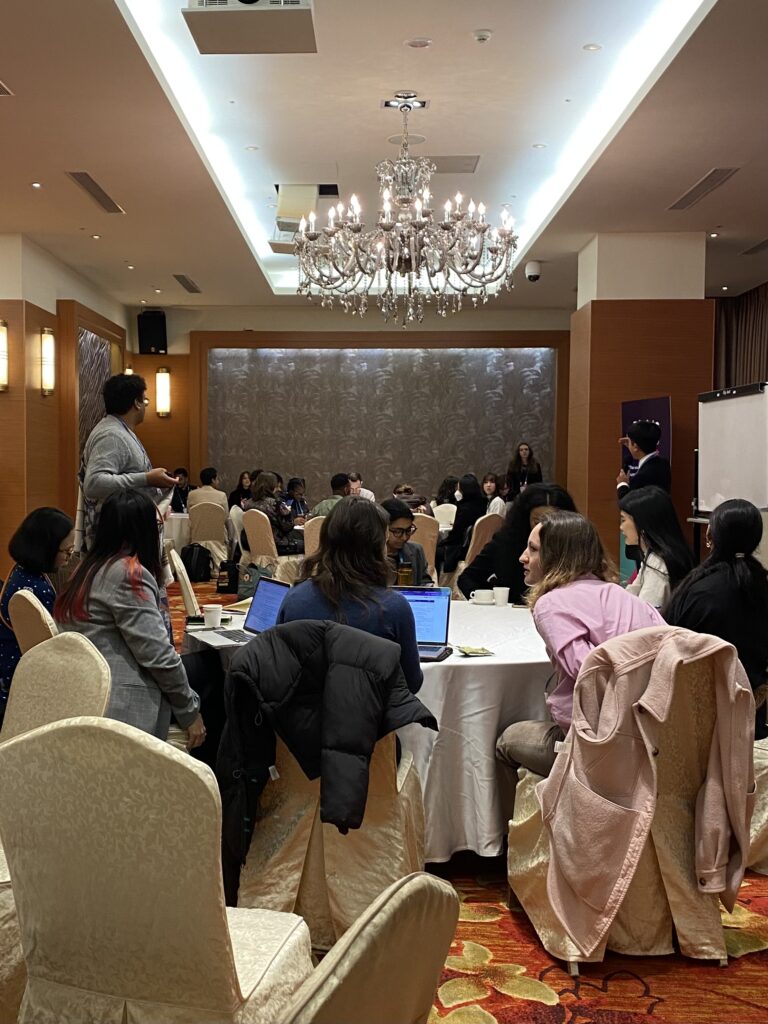
To get the ball rolling, the lead analyst of DoubleThink Lab gave a keynote speech on how digital technology shapes democratic participation and how this has been used by and among Taiwanese youth in the past years. They spoke about his experiences and how his organization was able to create and use digital tools and methodologies to strengthen democratic resilience.
The next agenda was a participant-led session. For one hour, attendees could participate in 2 out of 6 workshops with topics ranging from child rights in online spaces and youth peacebuilding to technology, AI, and disinformation. The first workshop I attended, “Age Against the Machine: Young Leaders’ Perspective on Age Verification and Social Media Blanket Bans,, was facilitated by the policy advisor of EU Digital Rights, where she briefly discussed age verification, social media blanket bans, and the state of child online safety, with the goal of creating a clear message to policymakers and other stakeholders. Though pressed for time, it was a good opportunity to talk about the perspectives of the youth on the existing policies related to age verification in their respective countries, and how we, as a group, should continue to be critical of said measures.
The following session I joined was more of a showcase of artworks by the women of Afghanistan. Led by the director of the Art of Freedom, she spoke about how her organization works to empower young women artists from minority communities to create zines, comics, and other forms of art as a tool to promote social change and the rights of the youth, women, and other marginalized groups. It was an impactful session, which also further emphasized the importance of RightsCon, for it helped their artworks reach a much wider global audience.
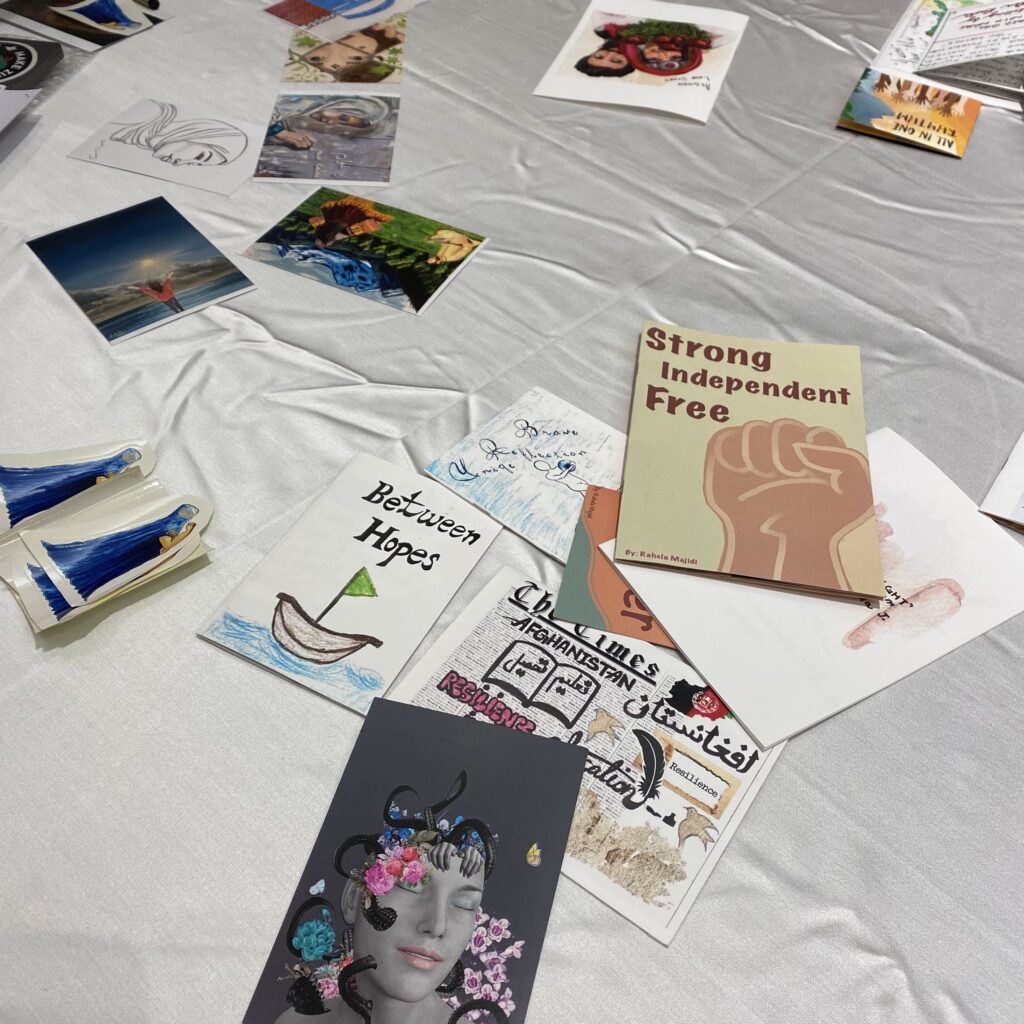
Before proceeding to the last agenda of the day, a participant-led workshop, the ambassadors of ISOC Youth gave a short talk on what the internet should be like with four main points: open, accessible, trustworthy, and secure. A representative from the Better Taiwan Together also spoke about the significance of summits such as this for young leaders around the world. Moving forward, we need to stress the importance of youth action and participation to the next batch of young leaders, within the summit and beyond.
The final workshop topics centered on designing action plans for different focus areas. Some areas include building digital movements through strategic litigation, Chinese information operations during elections, and building safe digital spaces. I participated in the workshop entitled “How tech influenced- and are influenced by democratic transitions,” where the group had rich discussions on the role of technology and digital spaces during the time of elections in our respective countries, and how technological control by governments such as signal blocking, the spread of disinformation, content moderation, etc., affected young people’s initiatives and freedom of expression, ultimately influencing their trust in the electoral and democratic systems. On the other hand, the group widely agreed that we should encourage governments to prioritize digital literacy and continue to push back on digital disruptions during such critical times.
Overall, I left the RightsCon 2025 with a wealth of knowledge. My experience at this global gathering was deeply invaluable to both my personal and career growth. It showed me that young people, much like any other attendee, have insights and experiences that are vital to the discussions on digital rights. Youth voices should be heard and incorporated into important decisions that shape solutions to address the existing and evolving challenges of human rights in the digital age.
This article was written by Kat Yuzon. She works as a project assistant at the Foundation for Media Alternatives
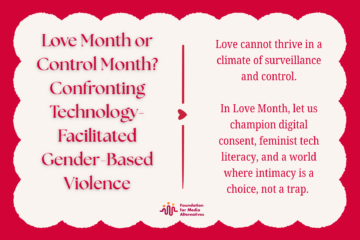
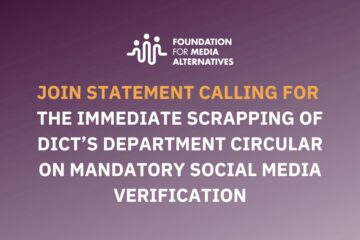
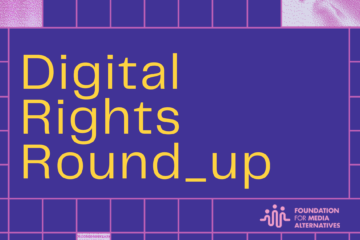
0 Comments